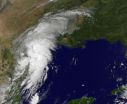(Press-News.org) WASHINGTON — Students who cheat in high school and college are highly likely to fit the profile for subclinical psychopathy – a personality disorder defined by erratic lifestyle, manipulation, callousness and antisocial tendencies, according to research published by the American Psychological Association. These problematic students cheat because they feel entitled and disregard morality, the study found.
Cheating, a perennial concern for educators, "has been facilitated by new technologies," said Delroy Paulhus, PhD, who led the research. "At the same time, cheating may seem more apparent because we can more effectively detect it." Because it's hard or even dangerous to try to reform a psychopathic person, he recommends blocking cheating using other means.
College students who admitted to cheating in high school or turned in plagiarized papers ranked high on personality tests of the so-called Dark Triad: psychopathy, Machiavellianism (cynicism, amorality, manipulativeness), and narcissism (arrogance and self-centeredness, with a strong sense of entitlement). Of the three dark personality types, psychopathy was most strongly linked to cheating. These findings appear in the September Journal of Experimental Psychology: Applied.
Students were spurred to cheat by two motivations, the research found: First, they sought to get the grades to which they felt entitled; second, they either didn't think cheating was wrong or didn't care.
The first of three studies at the University of British Columbia surveyed 249 second-year college students who, without having to share their identities, filled out take-home personality tests that looked at the Dark Triad and psychology's "Big Five" core traits of extraversion, agreeableness, conscientiousness, stability and openness.
Also anonymously, students were asked whether they had cheated on high-school tests or handed in essays copied from someone else. (Questions specifically referred to high school to allay concerns about admitting to cheating at the university.)
Each of the Dark Triad variables went hand in hand with cheating at a high level of statistical significance. The more likely students were to have cheated, the higher they ranked on the psychopathy scale, followed by Machiavellianism and narcissism.
Students who were more conscientious and agreeable were significantly less likely to have cheated. Those low in conscientiousness were probably more likely to cheat because they were less prepared and more desperate, the authors wrote, adding that disagreeable students would by definition be less cooperative. However, the predictive power of those two core traits paled next to those of the Dark Triad.
A second study measured actual, not self-reported, cheating by analyzing two of each student's term papers -- one summarizing a research topic and one summarizing a personal experience. The students, who took the same personality tests, were warned that their papers would be scrutinized by an online service that calibrates how much of a paper directly matches sources in a database. Plagiarism was flagged when any string of seven words or more directly matched a published source or another finished paper.
Of the 114 students studied, 16 plagiarized on at least one essay. Again, the Dark Triad and plagiarism were closely and significantly linked, with psychopathy leading the pack. Although for the essay, poor verbal skills were also tied to cheating, the association with psychopathy was tighter still.
With both the self-report and the plagiarism screen detecting cheating, the authors concluded that personality profiling can help predict cheating.
Finally, a third study examined why students cheat. A total of 223 college students went online to take personality tests and rate themselves on a Self-Report Cheating Scale that included items tapping motivation, such as "I needed to get (or keep) a scholarship," or "I'm not concerned about punishment if caught."
Analysis unearthed subgroups of students who felt that cheating was an appropriate strategy for reaching their ambitious goals, who were not afraid of punishment, or who were not morally inhibited. Psychopathy was significantly linked with all three motivations.
"Incentives such as high grades and scholarships seem to activate dishonesty in these individuals," the authors wrote. "The achievement goals shared by most college students trigger cheating in psychopaths alone." Making it worse, moral deterrents don't matter to psychopaths, who scoff at social norms.
The authors caution that subclinical psychopaths are unlikely to exhibit the extreme behaviors of criminal psychopaths. Even with subclinical levels, however, it's nearly impossible and potentially dangerous to intervene with psychopaths. To foil the natural cheaters, the authors recommend that teachers use different forms of the same test, ban cell phones and other electronics, use random or assigned seats, ask for essays about personal experiences (which are not easily duplicated), and use plagiarism screening software.
To a lesser extent, educators can expect that students who aren't well prepared are also more likely to cheat. The authors suggest that making a classroom less competitive could avoid tempting the weaker students.
INFORMATION:
Article: "Identifying and Profiling Scholastic Cheaters: Their Personality, Cognitive Ability, and Motivation," Kevin M. Williams, PhD, Craig Nathanson, PhD, and Delroy L. Paulhus, PhD, University of British Columbia; Journal of Experimental Psychology: Applied, Vol. 16, No. 3.
(Full text of the article is available from the APA Public Affairs Office and at http://www.apa.org/pubs/journals/releases/xap163293.pdf)
Contact Dr. Paulhus by e-mail at dpaulhus@psych.ubc.ca or by cell phone at 604-760-4462.
The American Psychological Association, in Washington, D.C., is the largest scientific and professional organization representing psychology in the United States and is the world's largest association of psychologists. APA's membership includes more than 152,000 researchers, educators, clinicians, consultants and students. Through its divisions in 54 subfields of psychology and affiliations with 60 state, territorial and Canadian provincial associations, APA works to advance psychology as a science, as a profession and as a means of promoting health, education and human welfare.
Personality predicts cheating more than academic struggles, study shows
2010-09-08
ELSE PRESS RELEASES FROM THIS DATE:
Restoring coastal wetlands? Check the soil
2010-09-08
MADISON, WI, September 7, 2010 – Rising sea levels and coastal development are threatening coastal freshwater wetlands with saltwater intrusion. While most ecosystem restoration projects have focused on surface water and groundwater, new research finds that conditions in the vadose zone, the unsaturated soil below the surface but above the water table, are of particular importance to seedling survival in coastal floodplain ecosystems.
Scientists at the University of Florida, the South Florida Water Management District (SFWMD), and the Florida Park Service investigated ...
Computer-based video analysis boosts data gathering in behavioral studies
2010-09-08
PROVIDENCE, R.I. [Brown University] — For decades, carefully logging data about how mice go through the motions of their daily routines has been a tedious staple of behavioral and neuroscience research:
Hour 2, minute 27: mouse 4 is sleeping;
Hour 3, minute 12: mouse 7 is eating;
and so on. It's a task most people would happily cede to automation. Now, says Thomas Serre, assistant professor of cognitive, linguistic and psychological sciences at Brown University, that's finally possible.
In a paper to be published online Sept. 7, 2010, in the journal Nature ...
Microbial breakthrough impacts health, agriculture, biofuels
2010-09-08
URBANA – For the first time ever, University of Illinois researchers have discovered how microbes break down hemicellulose plant matter into simple sugars using a cow rumen bacterium as a model.
"This is ground-breaking research," said Isaac Cann, associate professor in the U of I Department of Animal Sciences and member of the Energy Biosciences Institute (EBI) in the Institute for Genomic Biology. "The implications are very broad, yet it all started with a simple rumen microbe. It's amazing how we can draw inferences to human health and nutrition, biofuel production ...
Research!America releases vaccines fact sheet
2010-09-08
WASHINGTON—September 7, 2010— Research!America is highlighting the vital importance of vaccines with a new fact sheet in its Investment in Research Saves Lives and Money series. CDC recently reported that routine vaccination rates are increasing among teens aged 13-17, but for many diseases the vaccination rates are far below the CDC's recommended 90% mark. With kids heading back to school and flu season fast approaching, now is a good time to remind readers of the importance of vaccines and disease prevention.
Vaccine prevention is one of the most proven and effective ...
NASA saw strong T-storms in quick-forming Hermine's center, warm water to power it
2010-09-08
Tropical Storm Hermine formed very quickly yesterday in the very warm waters of the Gulf of Mexico, and northeastern Mexico and southeastern Texas are now bearing the brunt of the storm. Infrared imagery taken from NASA's AIRS instrument showed a quick organization of strong thunderstorms around Hermine's center of circulation and very warm Gulf waters that powered her up.
At 11 p.m. EDT on September 6, Hermine made landfall as a strong tropical storm producing heavy rains over northeastern Mexico and South Texas.
This morning there's a tropical storm warning in effect ...
For migrant workers, community cooperation builds on individual strengths
2010-09-08
MADISON – Fostering community cooperation, building on skills and strengths, and getting strangers to work together -- these are fundamentals of community development.
Now, a pilot study of six families living in a farm town in New Mexico suggests that small infusions of cash could fuel such cooperation and produce overlapping benefits.
The study grew from the idea that poor migrant workers have assets as well as significant health-care needs, says Alfonso Morales, a New Mexico native and assistant professor of urban and regional planning at the University of Wisconsin-Madison. ...
Addressing negative thoughts most effective in fighting loneliness
2010-09-08
Changing how a person perceives and thinks about others was the most effective intervention for loneliness, a sweeping analysis of previous research has determined. The findings may help physicians and psychologists develop better treatments for loneliness, a known risk factor for heart disease and other health problems.
Recently, researchers have characterized the negative influence of loneliness upon blood pressure, sleep quality, dementia, and other health measures. Those effects suggest that loneliness is a health risk factor, similar to obesity or smoking, which ...
Universe chaotic from very beginning
2010-09-08
Seven years ago Northwestern University physicist Adilson E. Motter conjectured that the expansion of the universe at the time of the big bang was highly chaotic. Now he and a colleague have proven it using rigorous mathematical arguments.
The study, published by the journal Communications in Mathematical Physics, reports not only that chaos is absolute but also the mathematical tools that can be used to detect it. When applied to the most accepted model for the evolution of the universe, these tools demonstrate that the early universe was chaotic.
Certain things are ...
Irrigation's cooling effects may mask warming in some regions -- for now
2010-09-08
Expanded irrigation has made it possible to feed the world's growing billions—and it may also temporarily be counteracting the effects of climate change in some regions, say scientists in a new study. But some major groundwater aquifers, a source of irrigation water, are projected to dry up in coming decades from continuing overuse, and when they do, people may face the double whammy of food shortages and higher temperatures. A new study in the Journal of Geophysical Research pinpoints where the trouble spots may be.
"Irrigation can have a significant cooling effect on ...
Institute for Aging Research study finds indoor and outdoor fall are different for the elderly
2010-09-08
BOSTON—The risk factors for indoor and outdoor falls for older adults are different, according to a new study by the Institute for Aging Research of Hebrew SeniorLife, an affiliate of Harvard Medical School, a fact that is often missed when the two are combined and may affect how falls prevention programs are structured.
"Indoor and outdoor falls are both important," says senior author Marian T. Hannan, D.Sc., a senior scientist at the Institute for Aging Research, "but people at high risk for indoor falls are different in many ways from those at high risk of outdoor ...


